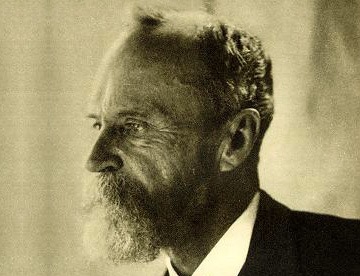| |
|
- T h e A u t h o r
- William James, American philosopher and psychologist, founder of the philosophy of pragmatism, was born in New York City, in 1842. His father was a supporter of Emanuel Swedenborg, and one of his brothers was the novelist Henry James. William James attended private schools in the United States and Europe. He studied at the Lawrence Scientific School at Harvard University, and the Harvard Medical School, from which he received a degree in 1869. Before finishing his medical studies, he travelled to Europe to study with the physicist and physiologist Hermann von Helmholtz, with the pathologist Rudolf Virchow, and with the physiologist Claude Bernard. He suffered frequent bouts of illness and depression. In 1872, after three years of retirement due to his illness, James became a lecturer on anatomy and physiology at Harvard University. After 1880 he taught psychology and philosophy at Harvard and left the university in 1907. In the following years he gave lectures at Columbia University and the University of Oxford. He died in Chocorua, New Hampshire, in 1910. His epoch-making work, The Principles of Psychology, was published in 1890.

- T h e W o r k
- The Principles of Psychology (1890) >>>
The Will to Believe (1897) >>>
Talks to Teachers (1899) >>>
The Varieties of Religious Experience: A Study of Human Nature (1902) >>>
Pragmatism, A New Name for Some Old Ways of Thinking (1907)
A Pluralistic Universe (1909)
The Meaning of Truth (1909) >>>
Some Problems in Philosophy (1911)
Essays in Radical Empiricism (1912) >>>
Letters
- A p p e n d i x
- William James page
Sources/Colophon
|
|